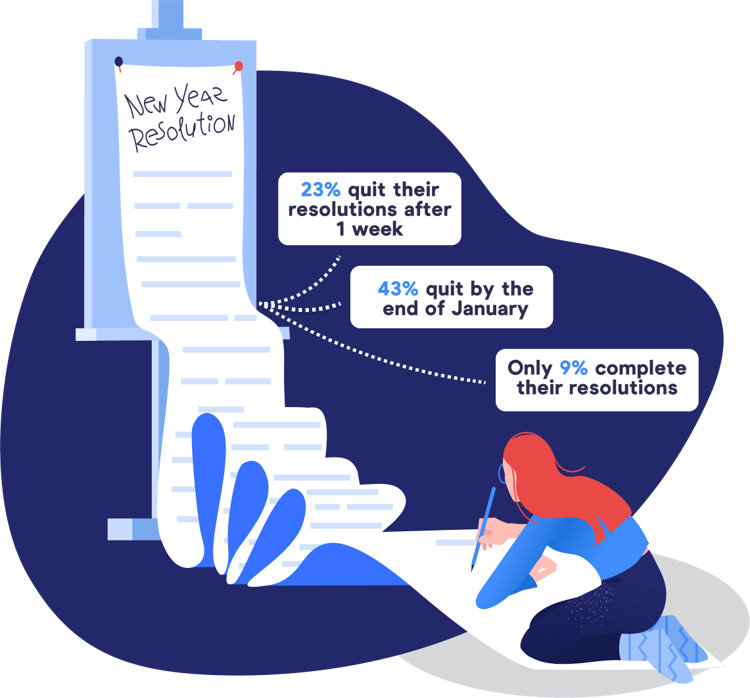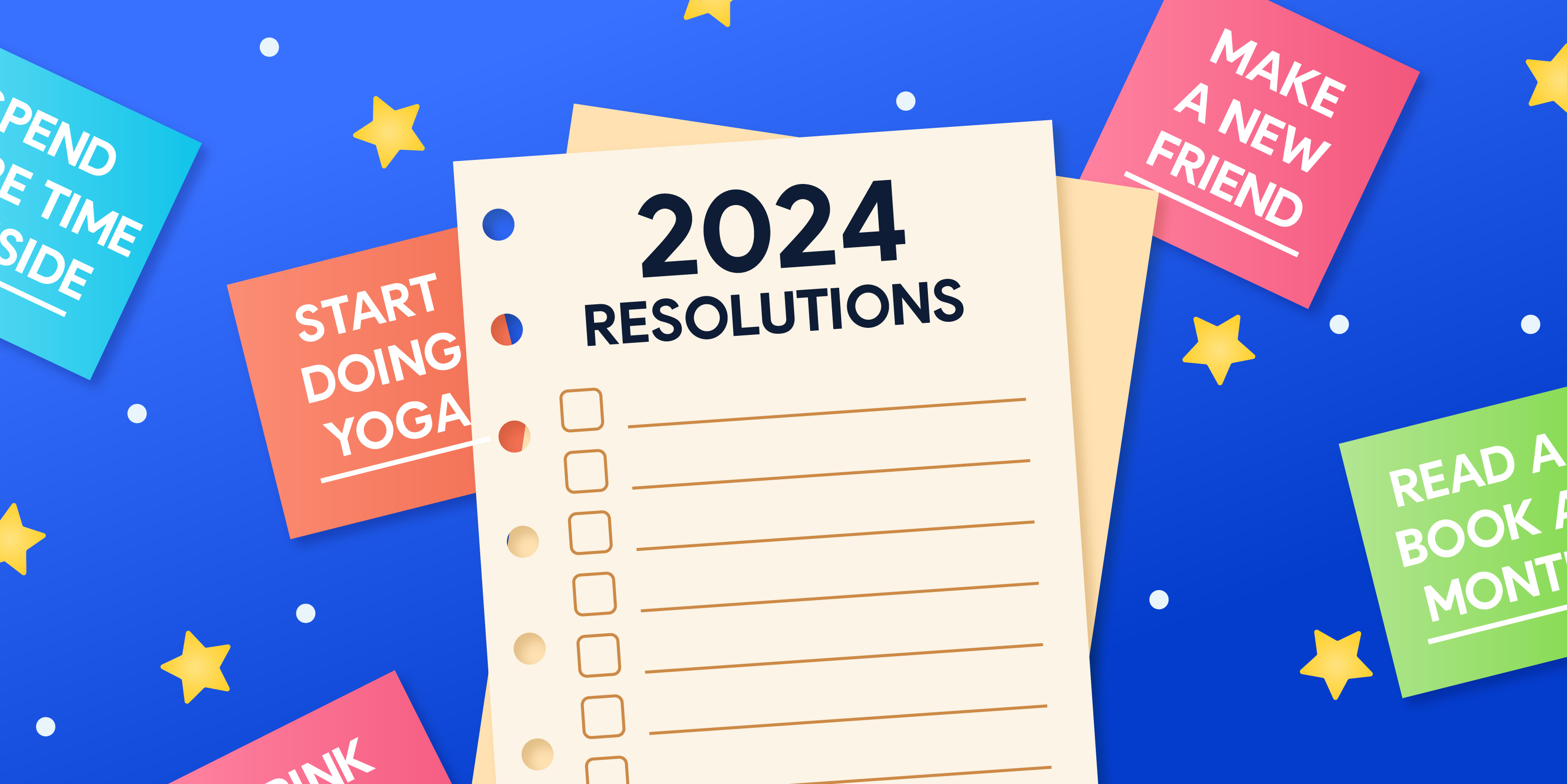It's coming; the time to make New Year's resolutions is speeding towards us. Now what if we told you that you've probably been making your resolutions wrong all along? Don't we all have years littered with past failures to save money, eat healthier, lose weight, and so on? Sure, those goals sound great but if we really had success creating these new habits, they wouldn't be on our list of New Year's resolutions every year.
Let's stop making New Year's resolutions that suck and start making ones we'll achieve.
Here's the truth. The reason you couldn't stick to your New Year's resolutions might not have been because you set bad goals; it's because you didn't have the right foundation. It doesn't matter how amazing the resolution is, if you don't start out the right way, you'll fail. Every time.

So let's talk about how to accomplish what you resolve to do.
1. Don't think about what you SHOULD do for your New Year's resolutions.
Yep, you heard us right. Stop thinking about all those resolutions you should make. You know the ones: lose weight, run a half marathon, eat more lean proteins, quit smoking etc. Throw all those away and start over.
Think about the things you WANT to do, not what you SHOULD do.
Do you really want to run a half marathon? Truly and deeply? Or are you just setting that New Year's resolution because it sounds good and your friends are doing it?
See, that's the trap with setting a resolution. It's easy to be influenced by how many other people are doing it or how impressive it sounds but when the excitement of the new year fades, it'll be impossible to stay motivated. So don't set yourself up for failure in the first place!
What do you really want to accomplish in the new year? Think about that and let it guide your goal setting. When your New Year's resolutions are founded on something you really want for yourself, you set yourself up to actually cross the finish line and build that new habit.
2. Don't base your New Year's resolutions on what you should STOP doing.
Let us give you an example. Imagine that you set the following New Year's resolution: "I'm going to stop my screen time from exceeding 6 hours a day." Okay, but what does that really look like? What are you doing with that time instead? There are a thousand ways to fill up that time and if you haven't picked the habit you want to build, you'll be overwhelmed by the possibilities and fail to stick to your goal.
Practice better goal setting by focusing on what you WANT to do. Do you want to read more books, pick up a new hobby, or spend more time outside instead of being on your phone? Choose one of those as your goal!
When you change your mindset from "I need to stop ______" to "I want to accomplish ______", you subtly shift the foundation of your New Year's resolutions from something negative to positive. Sure, guilt gets you feeling motivated in the short term but it won't sustain you like a positive mindset when things get hard.
3. Don't make more than one or two New Year's resolutions.
If you made a long list of big goals, we need you to take it and toss it in the trash. Time to start over. Maybe this contradicts all the advice you've ever been given but trust us, there's a better way.
Now that you've got a clean slate, write down just one or two specific goals. Make them small, measurable, and attainable. We're not saying don't push yourself but don't make it a goal to run a marathon if you don't like walking around the block. Sure, you can absolutely work up to running a marathon but don't make that your goal from the start! Instead, focus on the small steps that it takes to get you there.
When you start with a clear focus on specific goals, you set yourself up for success because it's easier to stay motivated when you can see that your goal is within reach. Once you accomplish your resolutions, set new ones and keep going!
Ultimately, the key to making New Year's resolutions that don't suck is having the right starting point.
Create a positive foundation for yourself by changing your focus from things that you feel you should stop doing and focus on what you want to start doing instead. Start off by picking one or two of these positive goals instead of making a giant list. When you follow these three steps, you put yourself in the right mindset to actually achieve what you're setting out to do. When March comes around, you'll be checking your goals off your list instead of feeling frustrated that you couldn't stick with them!
